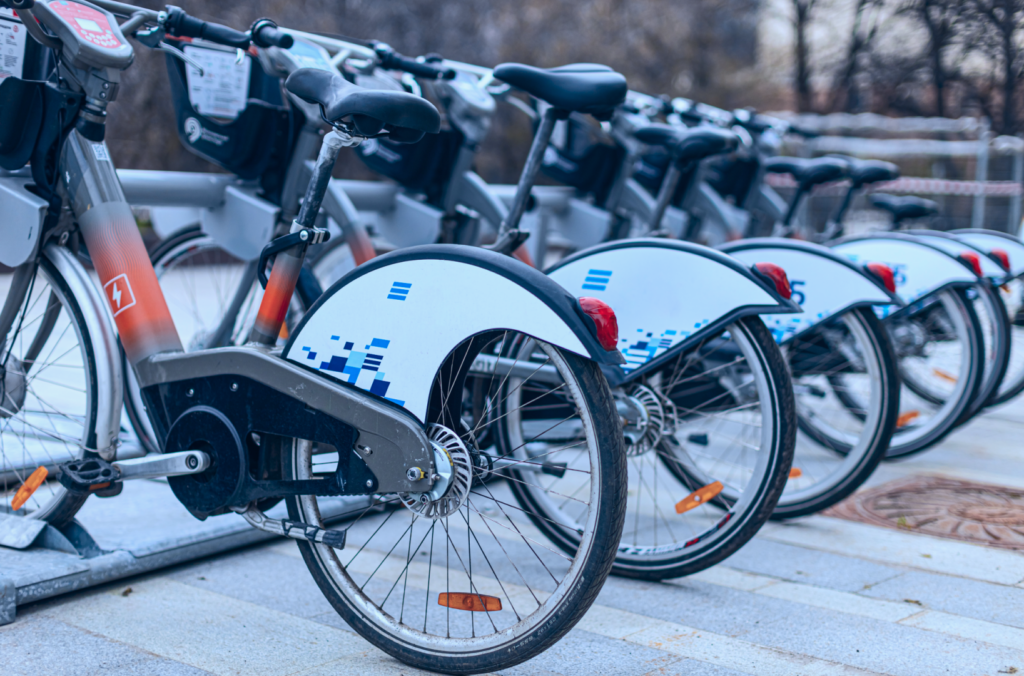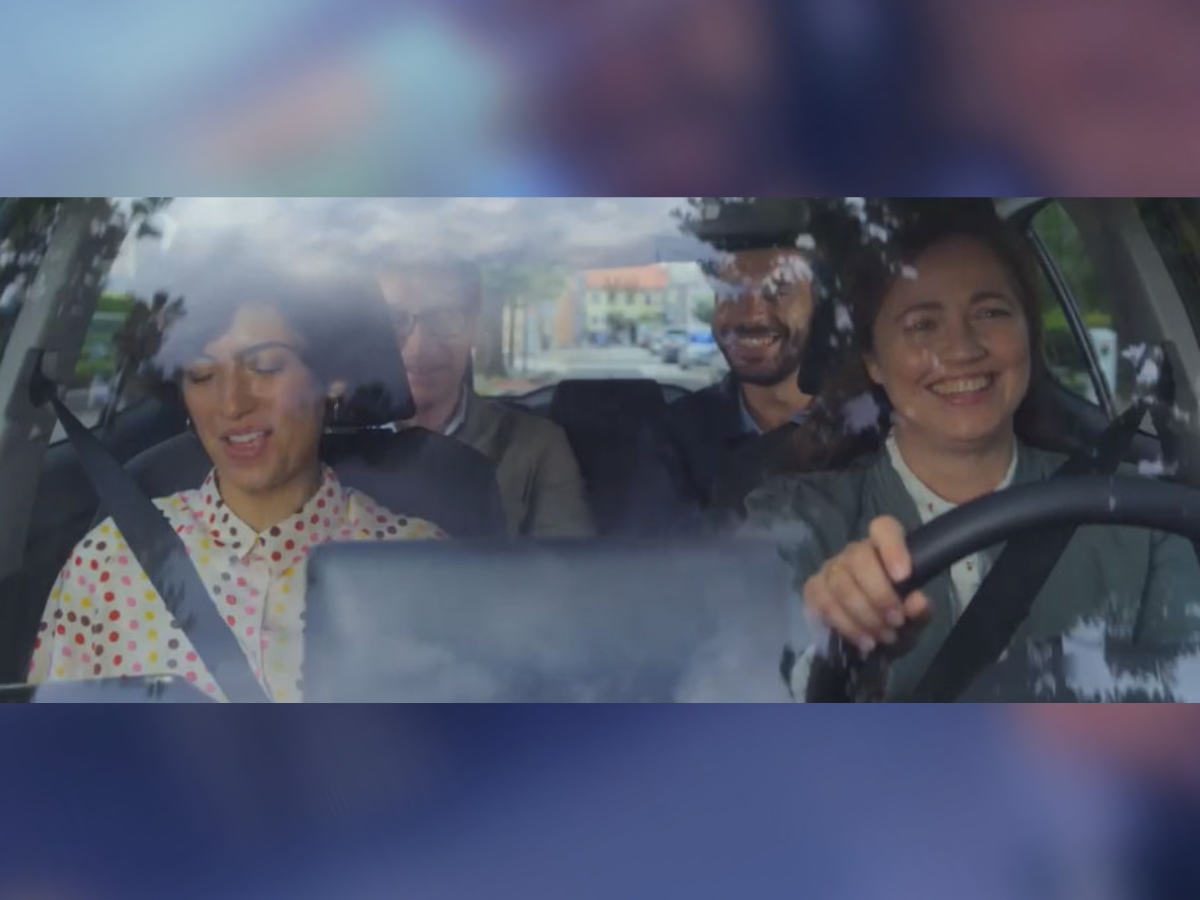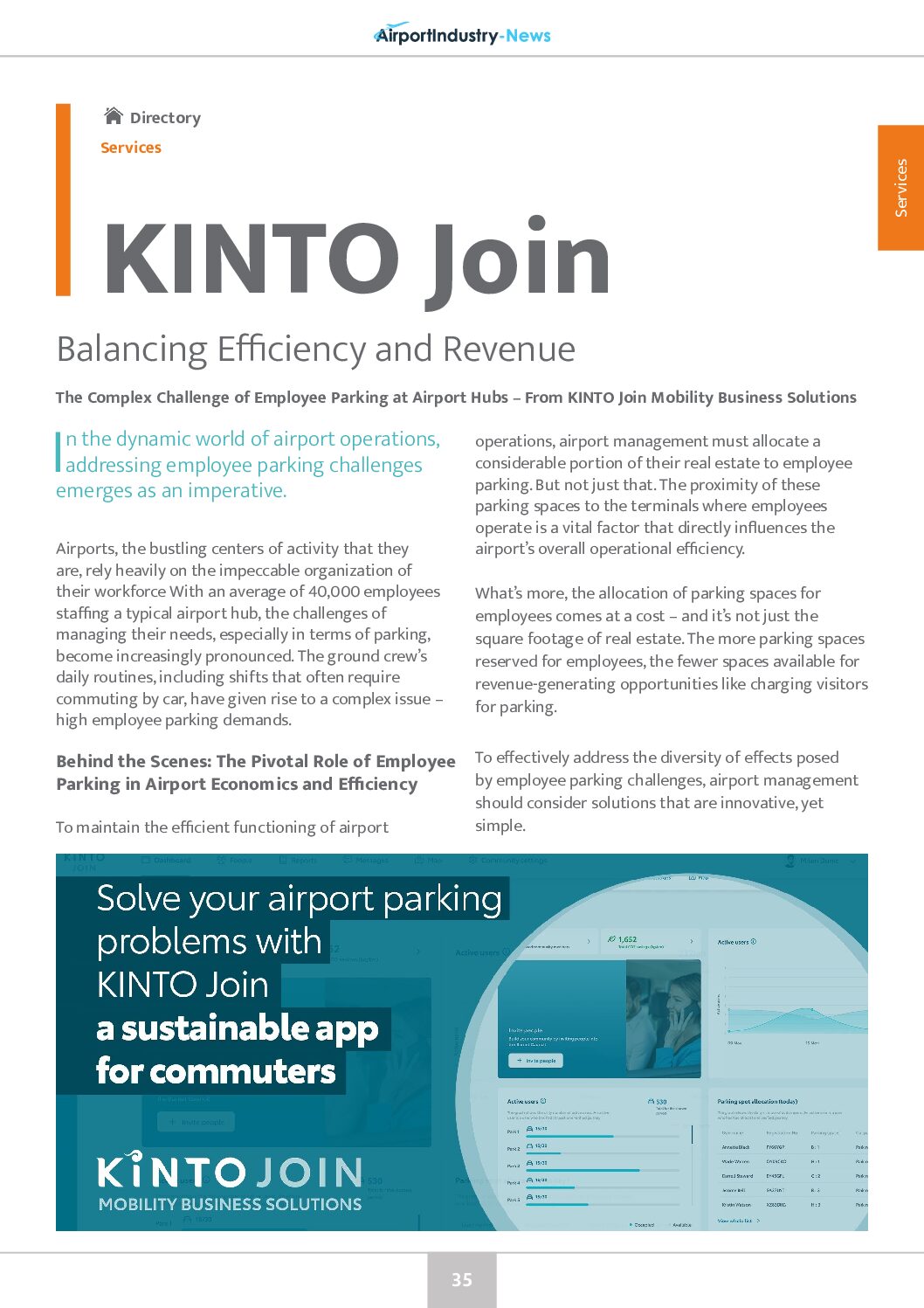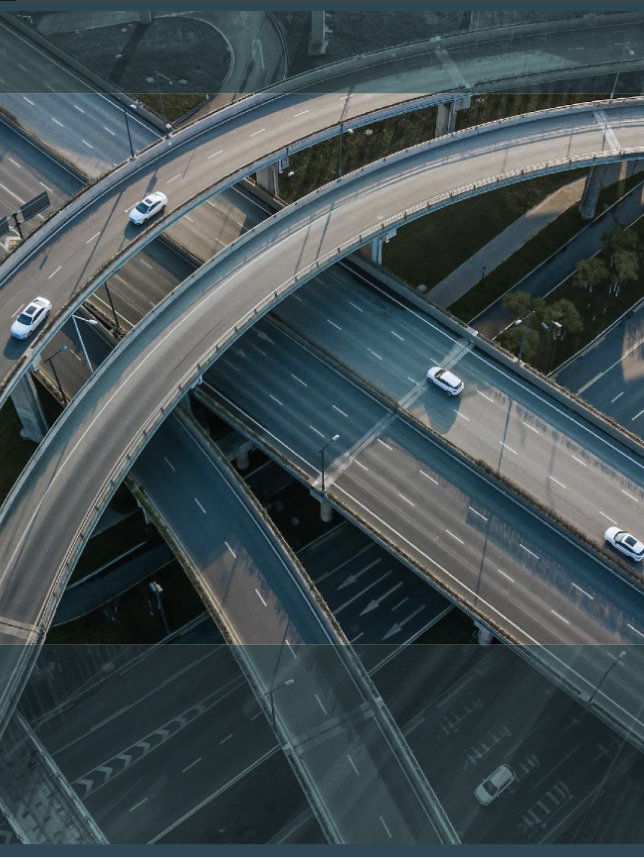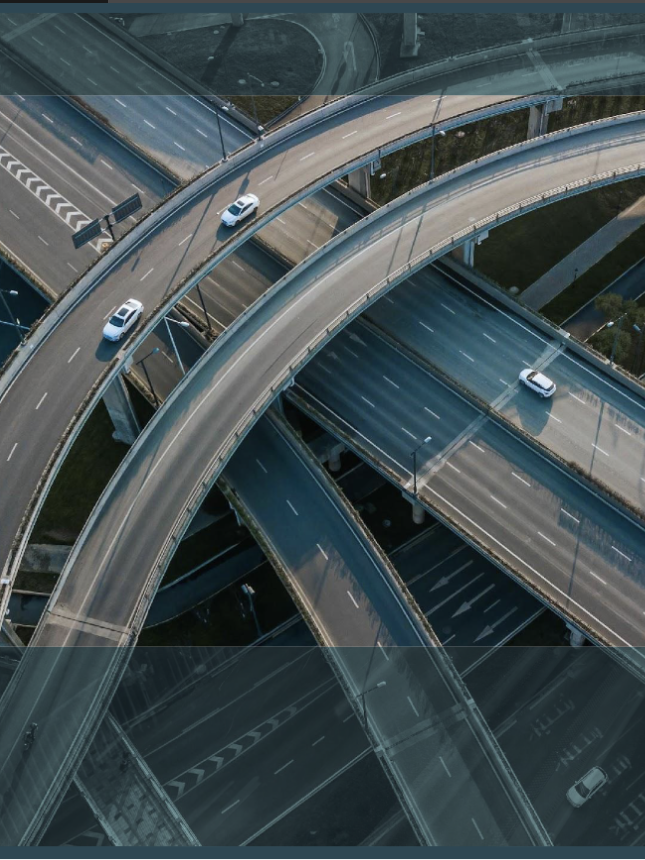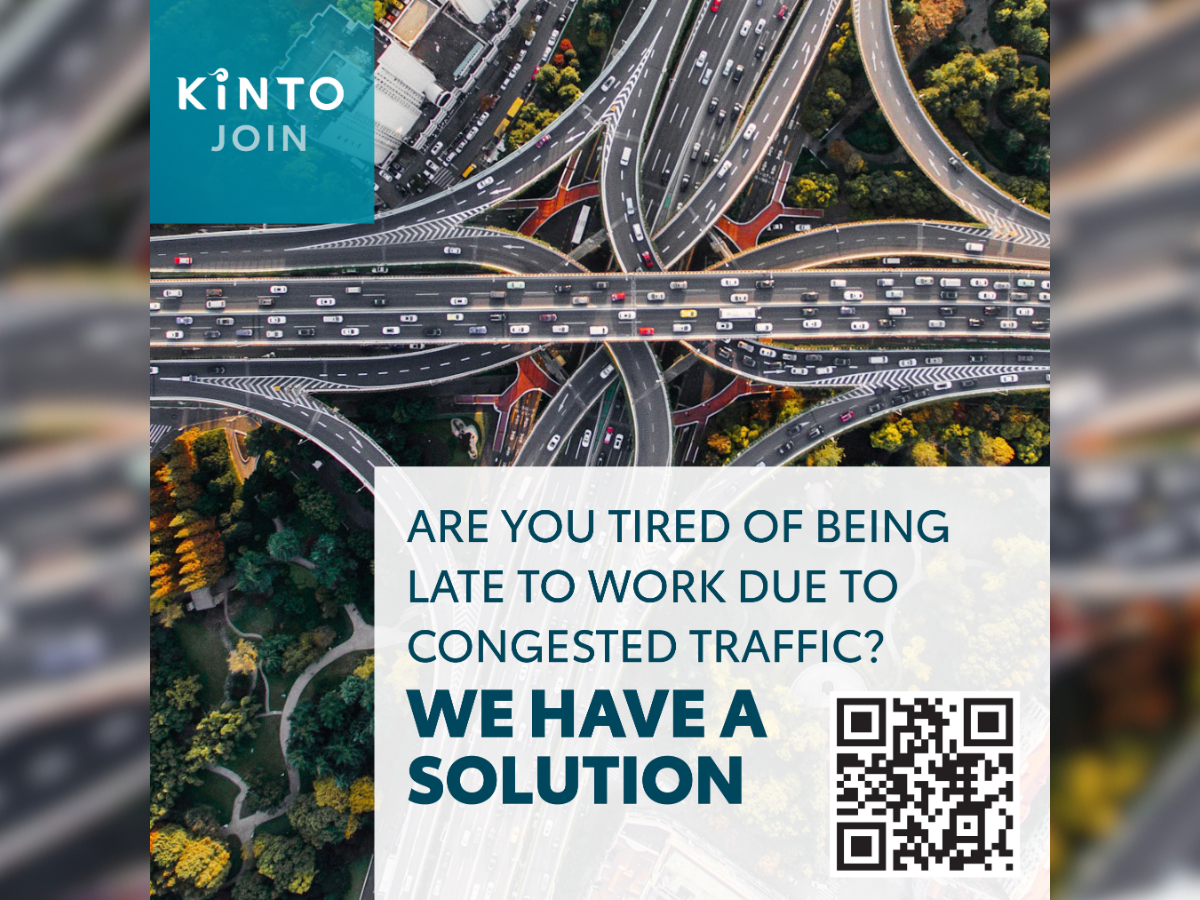As a member of Toyota’s Mobility family, KINTO Join Ltd helps companies design smarter, greener, and more inclusive transportation systems to effectively respond to the changing demands of their employees’ commuting preferences.
As we explore the airport management sector, we’ve noticed the industry’s strong focus on sustainability and the complex issues it faces, particularly concerning increased parking demands and the management of shuttle services. To address these concerns, we’re committed to providing innovative mobility solutions that drive meaningful changes for the industry.
Our patented technology, now recognized in both the US and Europe, represents a breakthrough in accurately verifying shared journeys and calculating the impressive environmental effects of ride-sharing, walking, and cycling.
KINTO Join – A Sustainable Commuting Platform
KINTO Join is an innovative software solution that helps airports address sustainability and parking challenges related to employee commuting. KINTO Join employs a unique verification technology that equips airports to offer incentives for eco-friendly commutes. The incentivization encourages more employees to opt for non-driving options, resulting in a notable decrease in emissions and a significant relief in airport parking demands.
Proof of value: Find the Gatwick Airport Case Study at the end of this page, or learn more here.
Emphasising the ever-growing need for airports to enhance their operational sustainability and reduce CO2 emissions, we have developed KINTO Join – an eco-friendly commuting solution.
Corporate Carpooling – Matching, Verification, and Reporting
Matching: With KINTO Join, employees can connect with co-workers based on shared routes, work hours and travel preferences. Our sophisticated matching algorithm doesn’t just match schedules – it masterfully manages shifts, ensuring that even those with unpredictable hours can commute hassle-free, without the need to drive.
Verification: The platform employs patented verification technology to identify carpooling journeys, enabling airports to reward champion carpoolers with premium parking spots. Seamlessly integrating with the airport’s current parking system, KINTO Join facilitates parking spot allocation and ticketing through complete automation.
Reporting: Our distinctive technology quantifies reductions in greenhouse gas emissions. The platform’s dedicated Admin Panel provides real-time monitoring of sustainable commutes, delivering verified, up-to-date insights into the airport’s environmental savings. KINTO Join’s advanced reporting features simplify ESG reporting for airports, streamlining the documentation of their environmental contributions.
Beyond Carpooling – Walking and Cycling Verification
KINTO Join’s capabilities exceed traditional carpooling by validating walking and cycling journeys as well. This extension empowers airports to reward individuals who embrace sustainable travel methods, further reducing parking pressures and emissions.
KINTO Ride – Digitized Shuttle Management
Amidst the rapid surge in passenger and staff numbers, which has outpaced the expansion of parking facilities and airport access routes, the pressing challenge of maintaining airport operations has become evident. Recognizing this critical need, we have engineered KINTO Ride – a digital solution set to transform shuttle services.
KINTO Ride is a comprehensive platform for end-to-end delivery of shuttle services. The standout advantage lies in its ability to consolidate all service aspects into a single hub. With features ranging from effortless ride requests to real-time vehicle occupancy updates and an advanced route planning algorithm, KINTO Ride empowers airports to ensure unrivaled efficiency and quality of their shuttle services.
KINTO Ride employs sophisticated technology to enable shuttle managers to easily handle high volumes of concurrent requests and automate ride-to-driver matching. Our route planning algorithm maximises vehicle occupancy and chooses the best route for each ride.
The driver performance scoring system empowers shuttle managers to vigilantly oversee their teams, upholding the highest levels of service excellence.
KINTO Join Case Study: Gatwick Airport Triumphs with KINTO Join to Save 52 tonnes of CO2
As part of its initiative to become the UK’s most sustainable airport, Gatwick was the first airport to launch KINTO Join, an incentivised journey sharing scheme for airport staff.
With the goal of reducing traffic and pollution, the airport management decided to incentivise employees who carpool to work by offering them reserved parking spaces.
Within the first 6 months of the launch, the initiative helped them remove 13,548 cars off the roads, amounting to a total of 53,952 cars over a 2-year period.
Challenges: Although there were 10,000 parking spots available for on-site staff, many employees still had to park remotely and use the airport bus service, adding up to 40 minutes to their daily commute. Furthermore, Gatwick set challenging sustainability targets, including the reduction of their carbon emissions, which they needed help in achieving.
Solution: KINTO Join’s commuter matching algorithm showed that 80% of the workforce could be transported to and from work in pools of three, with colleagues who share similar routes and commute times. By implementing the KINTO Join carpooling scheme, Gatwick Airport made it easy for its employees to find and connect with other members of the staff who share similar travel routes and work schedules.
To learn more about the platform integration process and how Gatwick benefited from implementing KINTO Join go over to: KINTO Join Airport Solutions
Embark on the path to sustainable mobility solutions today! Explore how KINTO Join and KINTO Ride can revolutionise your airport’s operations. Act now to enhance passenger experiences while reducing your environmental footprint. Find out more.


